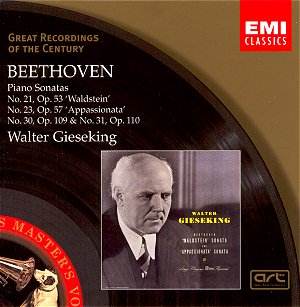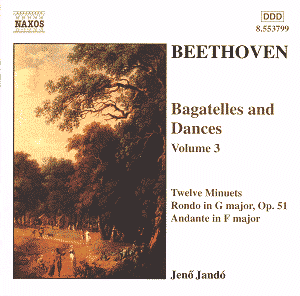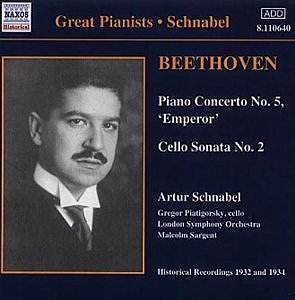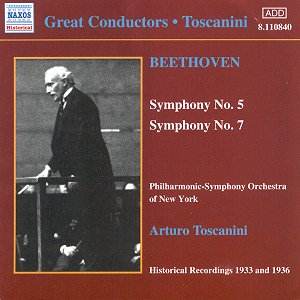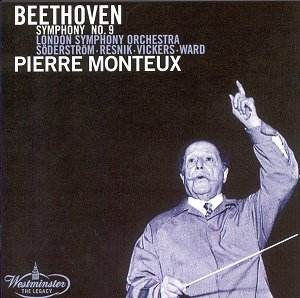 Composer: Ludwig van BEETHOVEN
Composer: Ludwig van BEETHOVEN
Works: Symphony No. 9 in D minor, Op. 125 ‘Choral’
Performers: Elisabeth Söderström (soprano), Regina Resnik (contralto), Jon Vickers (tenor), David Ward (bass), London Bach Choir, London Symphony Orchestra
Recording: Recorded at Walthamstow Assembly Hall, London in June 1962
Label: WESTMINSTER The Legacy 471 216-2
Beethoven’s Ninth Symphony, a monumental work that stands as a cornerstone of the symphonic repertoire, embodies the composer’s vision of unity and brotherhood, culminating in the famous choral finale based on Schiller’s “Ode to Joy.” Composed during a period of profound personal and political upheaval, the Ninth not only reflects Beethoven’s own struggles, including his deafness, but also the Enlightenment ideals of its time. The symphony’s first performance in 1824 was a landmark event, and its influence resonates through the ages, inspiring countless interpretations and performances.
Pierre Monteux, conducting the London Symphony Orchestra, approaches this monumental work with a blend of wisdom and vitality that belies his advanced age of 87 at the time of recording. This interpretation is marked by a remarkable lightness of touch, which allows the intricate textures of Beethoven’s orchestration to shine through. Monteux’s choices of tempo are strikingly varied, eschewing the potentially staid interpretations that often plague performances of this symphony. The opening movement unfolds with a sense of urgency, as Monteux deftly balances the orchestral forces, allowing the thematic material to emerge clearly without succumbing to heaviness.
Particularly notable is the Adagio, where Monteux navigates the potential pitfalls of the theme and variations with an acute awareness of pacing. At around eight minutes in, where the music is prone to meandering, he maintains a driving momentum that ensures each soloist’s contribution is both distinct and integrated within the overall fabric of the movement. This skillful handling not only underscores the thematic development but also enhances the emotional weight of the music.
The finale, while offering a somewhat distant recording balance for the vocal soloists, reveals a wealth of orchestral detail that often eludes more congested performances. The chorus, comprising the London Bach Choir, produces a full-bodied sound that, despite slight strain in the sopranos during the climactic moments, conveys the spirit of Schiller’s text with admirable clarity. Vickers, in his tenor solo, exhibits a fervent energy, though his impulse to rush somewhat disrupts the stately progression Monteux has established. The coda bursts forth with exuberance, capturing the youthful spirit that characterizes Beethoven’s finale, and showcasing Monteux’s ability to invigorate the work with a freshness that is remarkable for a conductor of his age.
The sound quality of this recording, reflective of its era, employs the single microphone ‘natural balance’ technique that Westminster was known for, resulting in a somewhat raw yet engaging auditory experience. The resultant clarity of orchestral detail allows for an appreciation of the individual contributions of the players, which is often overshadowed in more modern, heavily engineered recordings.
Monteux’s interpretation, while perhaps not without its imperfections, offers a deeply insightful and engaging experience of Beethoven’s Ninth. The performance transcends mere technical execution, striving instead to evoke the philosophical underpinnings of the work. This rendition stands alongside other notable recordings, such as those by Herbert von Karajan and Leonard Bernstein, yet retains a unique character that may appeal particularly to those seeking a balance between historical authenticity and emotional immediacy.
This recording deserves a place in the collections of both seasoned aficionados and newcomers alike. The interplay of orchestral and choral forces under Monteux’s seasoned baton brings to life the profound ideals of the Ninth Symphony, reaffirming its status as one of the greatest achievements in the canon of Western classical music.
